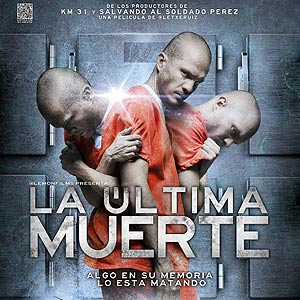Mexico - Mexican directors who presented films on a range of topics at a recent Latino Film Festival said that the country's cinema must stray from a focus on drug-related violence to woo movie-goers.
"The public has to stop thinking that because a film is Mexican it must be bad, full of violence, and boring," said filmmaker Patricia Martinez de Velasco, whose comedy-drama Aqui entre nos (Between Us) was screened during the festival.
Currently in theaters in Mexico, Aqui entre nos tells the story of a man, Rodolfo, who decides one day not to go to work and discovers how irrelevant he is to his family.
The director said she has been told the film, which has been effectively promoted on social-networking sites, is a big hit in Mexico among all ages and that "the theaters are full and people are howling with laughter".
"A breath of fresh air was needed amid the country's problems. People don't want to keep seeing violence and problems involving drugs," Martinez said, referring to drug-related violence in her homeland in recent years.
Jordi Mariscal, whose film Canela (Cinnamon,) an ode to Mexican gastronomy and its importance to family life, expressed similar views.
"I wanted to show that aspect of Mexico's daily life, the routine of people still shopping at markets and walking along the streets," he said.
The director, whose film depicts a clash of ideas between a young, European-trained chef and two women who defend the importance of traditional Mexican cuisine, said he was pleased to see "other, more family-oriented films and new, more diverse themes coming out of his country."
Mariscal said the next challenge is for Mexico's 5,000 movie theaters to provide more space for domestic cinema, which he said needs to be associated with quality and a broader range of themes.
 |
David Ruiz Gutierrez, director of La Ultima Muerte (The Last Death,) a psychological thriller about a doctor who finds an unconscious man by the doorstep of his cabin and tries to piece together his broken memory, also stressed the need to regain the support of Mexico's movie-goers, who currently see domestic cinema as "discredited."
"People are tired of going to see a film with bad sound and bad video when they can see a Hollywood film for the same price," Gutierrez said.
The director currently is preparing a new film about a Mexican he greatly admires, although he refused to provide more information.
"There's so much bad news in the country, so what I want to do is talk about hope and humanity," Gutierrez stated. "Find a Mexican to look up to, now what we need is heroes to serve as role models."


